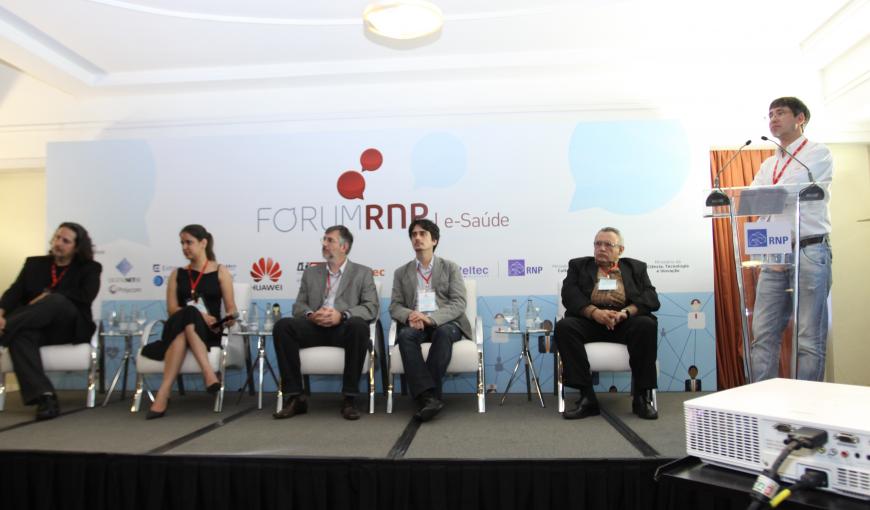Using ICT to train health professionals
Given the shortage of health professionals in Brazil, the Information and CommunicationTechnologies (ICT) play an important dual role: they are the means that enables distance training and are also the object of study for professionals who want to specialize in health computer science.
On 9/4, the third day of the III RNP Forum, coordinators of Distance Education programs presented the main initiatives that unite informatics and health in Brazil and discussed the use of ICT to optimize the training of human resources in this area.
According to the technician in charge for the Open University of the Unified Health System (Universidade Aberta do Sistema Único de Saúde - UNA-SUS), Vinicius de Araújo Oliveira, the project consists of a collaborative network of 36 higher education institutions and manages a platform that offers free short courses of graduation and training programs for SUS professionals.
The tool aims at satisfying the great demand for qualified people in the industry. “Investing in distance education is beneficial when students are scattered in different places or when the number of students is too big”, said Vinicius. Courses in family health have a high demand, such as the home care one, with 17,000 enrolled students nationwide.
Fernanda Chaves, from the General Coordination of Residences in Health, presented the collaborative space created by the Ministry of Education for the exchange of experiences and the collective construction of a national policy for health education, with an emphasis on multiprofessional residencies. “Our biggest goal is to connect all institutions that offer residency programs in the country”, she said.
According to the coordinator of the Center for Technology and Distance Education at the Federal University of Ceará (Universidade Federal do Ceará - UFC), Luiz Roberto Oliveira, the university has qualified 10,000 people in distance education courses. “Knowledge is everywhere and it is necessary to develop autonomy to pick it up through a self-directed learning, heutagogy”, he defended.
Owner of one of the only two Biomedical Informatics courses in Brazil, the School of Medicine of the University of São Paulo (Universidade de São Paulo - USP), in Ribeirão Preto, pioneered the proposal of the formation of an interdisciplinary professional, specializing in IT and health. “The main reason came from a growing demand for professionals with a strong background in IT and some specific characteristics different than the ones the basic computer scientist had”, said the education director at USP in Ribeirão Preto, Paulo Mazzoncini.
As for the professor of the Department of Health Informatics of the Federal University of São Paulo (Universidade Federal de São Paulo - Unifesp), Ivan Torres Pisa, he brought the 2012 census data on distance education, which show a 29% increase in the number of institutions offering distance education courses. Currently 36,000 students are enrolled in distance learning courses at Unifesp.
Ivan Pisa argued that distance education is the only effective strategy for the training of SUS professionals. “In order to combine quality, time, cost, and availability, this is the only way to meet the demand in the country”.
